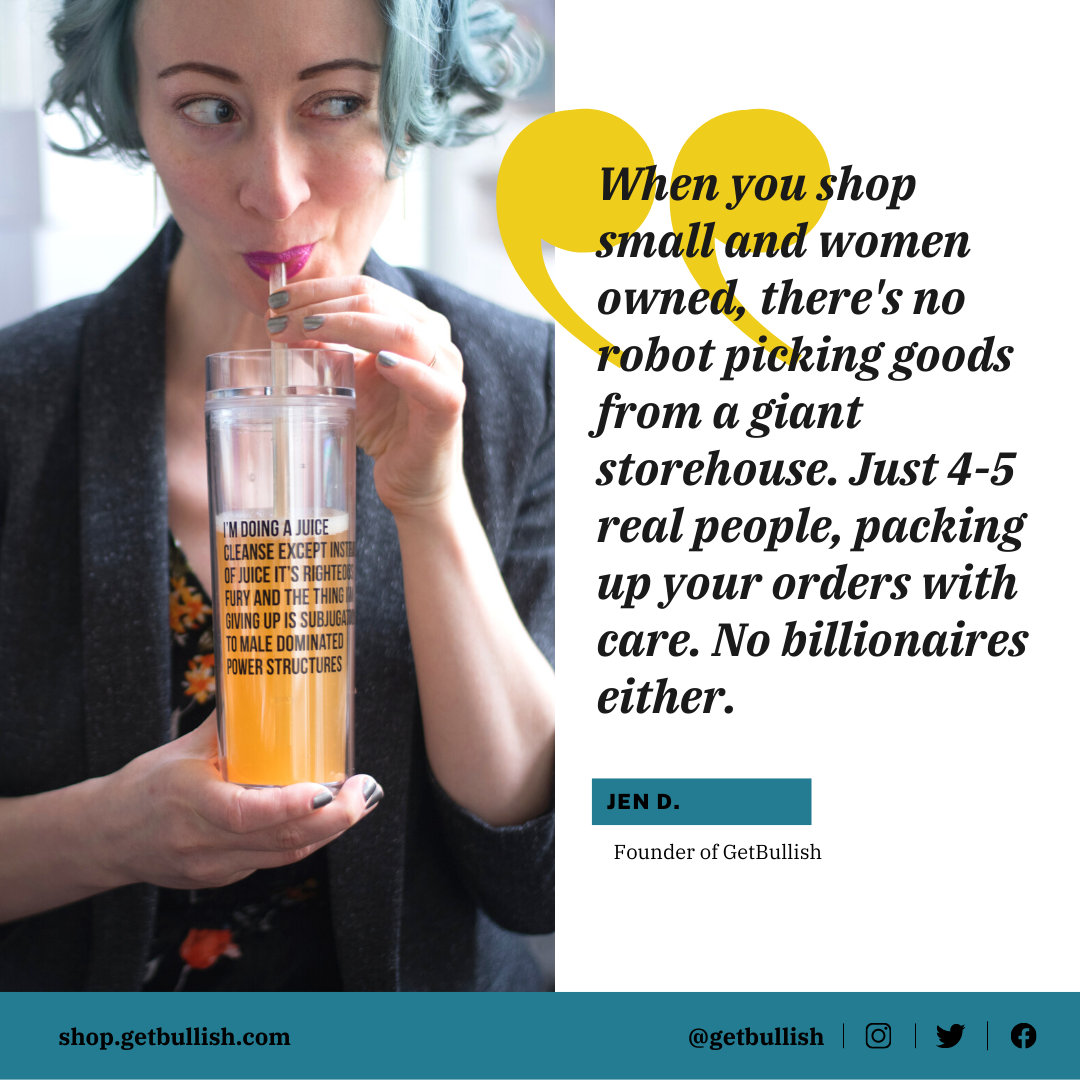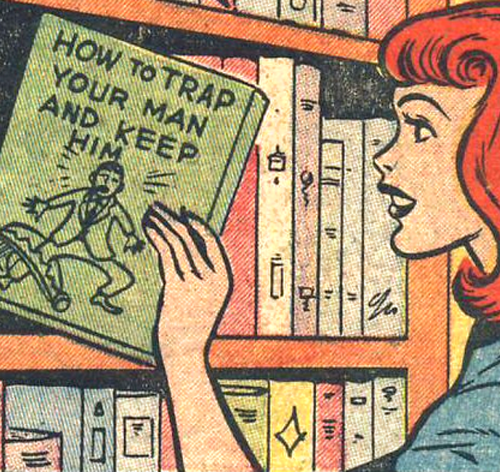This article is more than ten years old. It originally ran on a now-defunct website called The Gloss, where Bullish got its start. This post was created entirely by humans, as AI didn’t exist back then (but also: why would you want to read something no one could be bothered to write?) For more recent posts, try here.
In 2008, Esquire ran a tribute to 39 year old women, which, in the print version, was accompanied by a full-page photo of Rachel Hunter. It has been observed by many that women — famous women, anyway — due to various aesthetic treatments are visually converging on a single age, and 39 sounds possibly correct.
People always make a big deal about Demi and Madonna looking so good for their respective ages, but plenty of other magically never-aging women fly under that radar — Gwen Stefani is 41, Sandra Bullock is 46, and Kirstie Alley is 60! (As Catherine DeNeuve famously said, “At a certain age, you have to choose between your face and your ass” — Kirstie has made a fine choice, as I far as I’m concerned. Some people have a thing for big asses; no one has a thing for faces that look like jerky). Oprah has been basically the same age for twenty years. However, Lindsay Lohan (24) looks arguably older than Christy Turlington (42 — their ages are palindromes!)
A couple years ago, People magazine, in one of its “Most Beautiful People” issues, ran a feature on beautiful women and their daughters. Many of the daughters were not especially beautiful (alas, regression toward the mean!), but they were photographed very nicely, and every young woman has a certain je ne sais quoi embodied in plump cheeks and lips, precisely the features that older women attempt to emulate — with limited amounts of success — via injectables. Yet, despite the daughters’ incomparable flush of youth, the other thing that most struck me about the pictures was, “Oh, those young girls haven’t yet had enough time to tone their upper arms.”
Most women with great arms have been working at it for years. Nature takes away your pillow lips, you compensate by sculpting your biceps and triceps into something better than what nature gave you.
So, what I’m saying is that if you decide to participate in maintaining yourself at a celebrity/Manhattan/LA level, you can be the same age — an age called “as hot as you’re ever going to be” — for at least twenty years. Age has become quite malleable.
I would never deny that age discrimination exists, but I also believe in using almost everything to your advantage, and that a quality that gets you shut out of one opportunity can thrust you forward towards some other opportunity (there is Tavi, and there is Carmen Dell’Orefice).
Let us now discuss some number of the various stages of life, in chronological order, because alphabetical order would make much less sense.
Those delicate flushes of youth!
When I was thirteen, an editor from the Virginian Pilot, our local newspaper, came to speak to my eighth grade English class. I
kind of felt like the other students were acting like yahoos (“Do you ever get to interview celebrities?” “Do journalists make a lot of money?”), and it made me angry — as it always does — to be lumped in with a bunch of other people based on any taxonomy as crude as age group or geography. A “peer group” is an infuriating thing; I view its existence as a starting bell in a fight to the death.
It’s pretty easy to find the phone number for a newspaper (it’s how news happens!), so I called and was put through to Lorraine Eaton. As I remember it, I told her I thought the newspaper should have more of a “junior high school perspective” (sadly, I now realize that that is the problem with so much of the news) and that I would like to write for her. I was making my little phone speech off some notes I’d made on an index card. Fortuitously, Lorraine had just started or was in the process of starting a teen section, and she asked me to send her an article. I did: on notebook paper, in the mail!
It worked out great: I wrote approximately 150 articles over four years (here’s one — I was a child, mind you!), sent xeroxed packets of them along with all my college applications, received at least forty pieces of hate mail (including one on a Jesus-themed Valentine’s Day card) as well as several lovely messages from older women who wished someone had given them such an opportunity way back when, and once arrived at my high school to discover that the reason everyone was staring at me was that the local morning radio shock jocks had spent the last twenty minutes calling me a “feminazi” and making fun of an article in which I interviewed teenage vegetarians. (See last week’s Bullish: In Praise of Anger).
Here was a case in which it was easy to use my age to my advantage, although I didn’t fully realize the implications at the time. I was regularly invited to lunches with other journalists (Lorraine would have to pick me up, because I couldn’t drive). I didn’t know enough to “network” or probably even to be polite — for instance, by asking the other journalists what kinds of stories they were working on. I was all punchy and sarcastic when I should have realized that adults fucking love when adorable young people want to do what they do! They. Love. It. (As long as it’s not the crazy, jealous, stealing- Winona-Ryder’s lipstick in Black Swan, “I want to be you” variety of adulation). It was even pointed out to me that some of those journalists had worked for a decade or more, hoping to someday be awarded a column — and I had one right off the bat, because I was a novelty. The least I could have been was a bit awe-struck.
There is a whole economy of admiration, gratitude, and nachus (a fantastic Yiddish word I just learned for taking pleasure in others’ accomplishments). Sarte’s play No Exit involves three people in an eternal hell: the young woman wants the man’s love, the man wants respect and absolution of his sins from the smart older lesbian, and the smart older lesbian wants the young woman. None of the three will get what they want. That, though, is an economy! If people are motivated to act in order to receive what you have, you have currency. Looking up to people and validating their life’s work is a tremendous currency.
Finally, we live in a youth-obsessed culture. Just as youth is currency, you can “spend” that currency by endorsing something not currently thought cool among young people. Nearly everyone over 26 either secretly or openly worries about becoming old and irrelevant. Having a young person on the team — “youth specialist,” if you will — covers those people’s asses. If some fifteen year old whippersnapper got in touch with me and had a plan to bring my advice to high school students, I would be both flattered and interested — it would be easier, in fact, for a perspicacious teenager to get my attention than for a successful forty-year-old to do so. It would be possible that such a fifteen year old actually had no special insight or ability to lead her peers. But how would I ever know that? I would hardly have the ability to check.
One’s twenties (when you can get away with being cute and flighty but will suffer for it later)
A decade after my stint as a teen writer, I found myself talking to a 45-ish colleague who was enraged that he had not been selected for a gig, and that a guy in his twenties had gotten the job instead. Despite the fact that, obviously, a company can hire any keynote speaker, corporate trainer, or logo designer they want, he felt that he had earned that job by having built up a reputation in the field and done other, similar jobs so that this one was the next step in a logical progression. I listened a bit more, and the situation became clear: I don’t think the hiring manager really cared that much who he hired — the money wasn’t coming out of his own pocket, and any of the candidates would’ve succeeded at the gig. So, the hiring manager had a little bit of power, a favor to offer. If he gave it to my colleague, he would have gotten no satisfaction whatsoever — my colleague felt that he had already earned the job, and would have shown no gratitude at getting what he felt was his by right. But by giving the job instead to a young upstart, the hiring manager received the upstart’s gratitude in return! And maybe if the upstart went on to become very successful, the hiring manager could claim that he had had a hand in the guy’s career! It’s like buying stock in someone else’s success!
That is, if you help someone move one rung up a ladder, they don’t think much of it — but help someone move four rungs at once, they’ll hit you back later. If you’re looking to move up four rungs at a time, find someone who could use their ass kissed a bit. (See Bullish: How to Win When the Workplace Runs on Feelings.)
When I was 20 (in 1998), the Internet was a very scary thing to older people running businesses. Many people just assumed that young people “knew all about that computer stuff,” and this assumption was more true than not. In 1998, the way to become master of the Internet was to learn HTML. So, I did. At the moment, “the thing” is probably Twitter, and whatever comes after that. If you are an intern, just out of college, or in your early twenties, one competitive advantage you have is the assumption by nearly everyone that you just intuitively understand what Twitter is for and how to use it. So, make sure that this is true. And then, if your company is not yet using Twitter (or whatever the next thing is), offer to take care of that.
When presenting these offers to a boss, here is a technique that has worked well for me — I call it “Terror and Relief.” Introduce the topic (“So many companies are doing amazing promotions with Twitter!”) Then talk nonstop for approximately thirty seconds: brain-dump complicated facts and terminology! Explain how one uses hashtags and finds out what topics are trending! The more complicated and obscure the better! This is the “terror” phase. Once anxiety has been introduced, swoop in and save the day! “As you can see, I find this very exciting! I’d be happy to manage the company Twitter account and send you updates.” If you can do Terror and Relief three times in a single interview, I think you’ve locked some shit down. (In 1999, I was very successful with “Many organizations are creating websites that look nice, but can’t be viewed by blind people using speech
browsers. I’m sure accessibility is important to you. Putting in these special tags OMG COMPUTER TALK IF WE DON’T DO WHATEVER SHE’S TALKING ABOUT WE WILL BE DISCRIMINATING AGAINST THE BLIND OMG HELEN KELLER MIGHT NEED OUR INFORMATION will allow us to make the site accessible to everyone!”)
If someone is already doing well with Twitter, try claiming Facebook or Digg or Stumbleupon or SMS marketing or whatever else I’m too lame to know about. Alternate plan: do you know a lot of people who are still in college? If your company’s product is appropriate for that age group, email your college friends and ask what they think about things, and write up little reports, with quotes. You’re a market researcher!
Adding “social media guru” or “youth marketing maven” to your repertoire creates an effect kind of like how a lot of people remember very fondly the time their dad took them out for ice cream and made them feel like a little lady, but they kind of forget about that time he went to work every day and paid the bills for twenty years. People remember the little extras more than the big obligations (i.e., your actual job).
Finally, your twenties is a time to be a natural hottie, but also a time when dressing like your peers will keep you progressing at their rate, which in a bad economy is likely no rate at all.
I was once doing a presentation, and a woman who could’ve passed for any age between 16 and 24 was helping coordinate the event. The first thing I noticed was her cute, slightly dominatrix-like peep-toed cage booties, worn with leggings. Later, after the presentation, we chatted, and she said she felt self-conscious because she had skipped two grades in elementary school and was actually even younger than people thought. My first thought: Booties and leggings! My second thought: What a smart girl, skipping 1st and 4th grades! Then again: Look at the lower half of your body!
I responded by telling a story about when I ran my first company, from when I was 19 to when I was 23, and I was constantly trying to make myself seem older than I was. Sometimes I’d convince people (through assiduous wearing of suits, refusing to discuss my personal life, and dropping frequent references to “dancing to Karma Chameleon at the prom”) that I was thirtyish, at which point I would get queries about how I kept my skin so nice, and I would feel a little bad when I said “Oil of Olay” when the real answer was “I am an estrogen explosion!”
I wrote in Bullish: How to Dress for Battle about a book, first published in the 1970′s, that reported the results of scientific studies on people’s reactions to women dressed in various incarnations of business clothing. One finding: both men and women treated more seriously the requests of women wearing jackets over blouses or dresses (rather than the same outfit without the jacket), unless the women’s nails or speech patterns gave away the ruse by marking them as lower class (see Bullish: Social Class in the Office).
Nobody wore leggings to the office in the ’70s, but they did wear leisure suits. Leggings are sort of the leisure suit of pretty young girls. If your clothing is comfortable enough to curl up and take a nap in, it’s probably not officewear.
I’m hardly in a position to declare by fiat that an item of clothing is inappropriate for an office, but I daresay I can report that – just as old ladies will protest if you wear white after Labor Day — people over 35 will probably think you are not dressed appropriately if you are wearing leggings in any other context than as tights under a dress on a cold day. In sum:
What People Born Before 1980 Mostly Think About Leggings:
Worn as Tights – Who cares?
Worn as Pants with Tunic Top – Not really sending the message that you want to be taken seriously. But you do look ready for a cuddle!
Worn as Pants With Your Butt Showing – No. Just no.
Leggings In Any Color Other Than Black Worn With Your Butt Showing – Laughing hysterically as you walk away. Even if you are a size zero, you now have crazy-haunches!
Maybe it’s just me, but I also am personally of the opinion that I should never be able to see all of your feet in an office. Peep-toes, yes. Flip-flops, even the sparkly kind? No. A million other styles of shoes in between? It depends. I suggest going for “50% exposed surface area or less.” Looking like someone who could be seriously injured by falling objects, the wheels of various pushcarts, and stampedes just makes you look vulnerably part-naked. Being basically barefoot is not assertive. Unless you are Bruce Lee.
Obviously, there are many exceptions: if you work in a surf shop, for instance. But even if you think I’m a sartorially judgmental jerk, surely, you must admit that chances are high that other people are, too! Why risk it? Also, statistics suggest that at least one man in your office is really into feet. Just saying.
Your twenties are an excellent time to dress like a thirty-five-year- old by day, making all the actual thirty-five-year-olds jealous of your barely existent nasolabial folds! And then, you can dress however you want at night, in a Clark-Kent-to-Superman fashion! In other words, your twenties are the time to use every weapon available to leave your peer group pathetically lost in the dust that you leave behind, tragically muting the metallic properties of their inappropriate footwear.
OMG, this is why people start injecting things into their faces!
I don’t want to talk out my ass about aging. I’m 32. I did write in Bullish: How to Age with Panache and Strategic Awesomeness that I found the little lines at the corner of my eyes charming, even though I know I’m not supposed to like them. I think they make me look trustworthy. But I don’t mean to paint over the issue with glitter-sparkles: while many people agree that crow’s feet are sexy on men, and some people like them (or don’t mind them) on women, absolutely no one thinks that droopy jowls are attractive or indicative of any positive personality quality.
Aging is full of indignities. That’s why I believe in collecting, well … dignities. To balance it all out.
I also don’t want you to think that I think thirties = old and that everyone else falls off the map, like when the fashion magazines blare “Beauty at any age!” and then there’s a picture of a starlet for every age, one per year, beginning with Selena Gomez and ending with however old Meryl Streep is that year, and then that’s just THE END OF BEAUTY. Not okay. If you advertise “Beauty at any age!”, I want to see a baby wearing makeup and a 116 year old woman in repose in a bed made of
solid diamonds.
So, let’s take for granted that it’s really a turning point when you can say that you have ten years’ experience in something without cheating your way back to some part-time job you had in high school. In your thirties, you should have a bitchin’ resume and money in the bank (all the more so if you want to have kids — see also the Bullish about emergency funds). In How to Shut Down Street Harassers, I wrote about using my Schoolmarm Voice of Shame to shut down grown men acting like pathetic, shouting (horny) little boys. So, there are some obvious benefits to hitting one’s thirties, provided that you own it. If you spend all of your thirties trying to look Forever 21 (god, do I hate that stupid store name), you kind of get the worst of both worlds — you shake off the benefits of your real age while trying to compete at something you can never, ever get better at, only more pathetic.
If I have anything useful to say about ages I have not yet reached, it is from the perspective of a thirtysomething who knows she is working with incomplete information — just as a fifteen year old could probably convince me that she knows how to market my wares to high school kids, a fifty year old could probably convince me that she knows all the decisionmakers at all the other companies I need to do business with. I’m not suggesting that anyone lie. I’m suggesting that I would be duly impressed by someone who gave off an air of having gone to college or hosted holiday parties for lots of people I’d really like to meet.
Also, people over fifty (as in, in O magazine) regularly comment that they’ve “mellowed,” and little things don’t seem as important. There are some times that it can be beneficial to play to stereotypes. For instance, if there have ever been times that people have assumed maybe I wasn’t good at teaching math because I’m a woman (I think this has barely ever happened, but maybe people have thought this before I started talking?), I think I’ve probably benefitted equally from the assumption that I would be more empathetic or welcoming. I mention that here because being mellow — and, even better, having a calming effect on others — is a great asset.
While we are all individuals, of course, if you asked a random sample of people what they would most want from a 50+ coworker or employee, I think that having a calm, dignified, rational “big picture” would come up a lot. Might as well play to stereotype.
Everyone has deep within them memories of some horrible, intractable problem from toddlerhood — you don’t remember it, but one time, you peed your pants and were standing in a puddle while holding a stolen cookie that you knew you were going to get in trouble for taking and then you started feeling cold and wet and bad and you were worried you would get punished and your parents wouldn’t love you anymore. And then (hopefully) Mom or Dad came along and worked it out and what seemed like the absolute end of the world to a three year old actually wasn’t a big deal at all!
Our psyches are built on that shit. If I were Mom-like, I would exploit that. Oh look, you pissed all over your Powerpoint presentation? I can help you. And you will spend the rest of your life trying to win my approval and avoid the shame that I can dole out at any moment. Take that!
And that’s a column. Here at Bullish, your glass is so half-full it makes all the other glasses dump out part of their water so they can be just like it.









